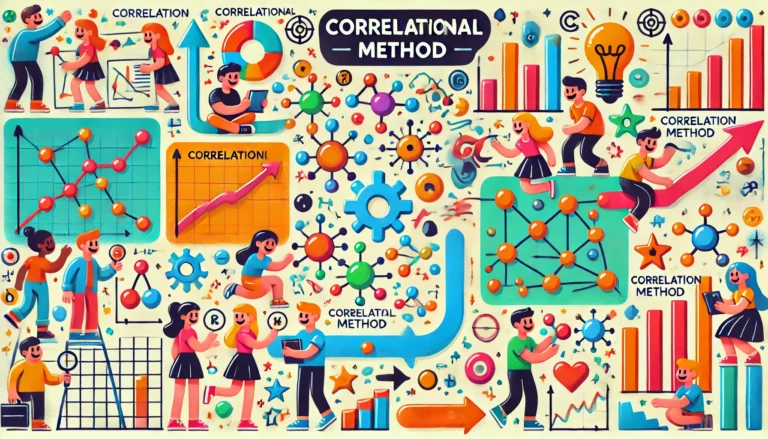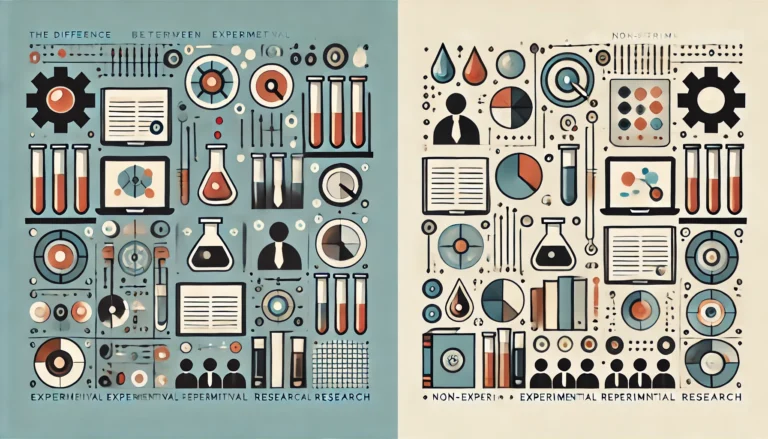Non-Experimental Research
Non-experimental research has that name because it does not include evaluating an independent variable. Researchers seek to retrospectively analyze historical events, extracting new information and arriving at novel or verifying conclusions.
Variables in traditional experimental research are systematically regulated by researchers inside a controlled laboratory environment. In the non-experimental study, the observer does not have the capacity to manipulate any variables directly.
Characteristics of Non-Experimental Research
The unique characteristics of non-experimental research differentiate it from other commonly used methods:
- Most of these investigations are undertaken using previous events and past experiences.
- This strategy does not focus on developing connections between variables.
- The gained research does not have a direct impact on the events under investigation.
- This form of testing has no effect on or influence over the phenomena under investigation.
- The study subject or hypothesis may pertain to a singular variable rather than a statistical correlation between two variables. (For example, to what extent are people’s first judgments reliable?)
- The research issue can pertain to a non-causal statistical association between variables (e.g., does a correlation exist between verbal intelligence and mathematical intelligence?).
- The study question can encompass a wide range of topics and be either exploratory or focused on understanding the experience of a specific group (e.g., what is the lived experience of a working mother diagnosed with depression?).
Types of Non-Experimental Research
Non-experimental research can be classified into three main categories: single-variable research, correlational and quasi-experimental research, and qualitative research.
Single-variable Research
Research can be classified as non-experimental when it concentrates on examining a single variable rather than investigating the statistical association between two variables. While there is no universally accepted word for this type of research, we shall refer to it as single-variable research.
Single-variable research focuses on identifying and analyzing a single variable in order to get new insights from the observed events. Rather than trying to figure out a correlation between two variables, this form of study seeks to cultivate an in-depth understanding of a specific subject – typically in order to facilitate subsequent testing.
For instance, the participants were asked to make three successive attempts to vertically lift themselves into the air as high as possible from a stationary stance. The study solely focuses on quantifying the mean value of an individual’s jumps.
Correlational Method

Correlational research entails the measurement of two or more variables of interest without exercising significant influence over the variables.
The student is performing correlational research by investigating whether middle-school kids have experienced bullying and then assessing their self-esteem levels.
Quasi-experimental Method
In the quasi-experimental method, researchers manipulate an independent variable without actively selecting or controlling the participants in the experiment.
For instance, a researcher initiates a campaign advocating for individuals to give up smoking in a particular city and subsequently contrasts the outcomes with other cities lacking a program for quitting smoking.
Qualitative Research
The qualitative research approach aims to address complex questions and incorporates a written record of experiences and activities. Qualitative research typically involves non-numerical data that is processed using non-statistical methods.
Advantages of Non-Experimental Research
Non-experimental designs offer numerous beneficial research opportunities. The advantages encompass:
- Non-experimental research is applicable for analyzing historical events.
- The model’s adaptability allows for the observation of numerous distinct incidences.
- The cost of this study method is significantly lower compared to experimental research.
Disadvantages of Non-Experimental Research
The drawbacks of non-experimental research include:
- These small samples are not representative of the broader population.
- The investigation is limited to the observation of a single variable.
- Inaccurate results can arise from researcher bias or errors in the methodology.
Conditions for Conducting Non-experimental Research
Non-experimental research is ideal for studying past events or single variables. The choice between experimental and non-experimental research depends on the research question and the feasibility of manipulating variables.
Experimental research excels at establishing cause and effect, but manipulating variables in real-world settings can be unethical. In contrast, non-experimental research offers valuable insights into natural phenomena.
Experimental designs are more common in science fields like medicine, biology, and psychology, while non-experimental designs are frequently used in business, politics, history, and social sciences.
Use experimental research when you have a specific hypothesis about a causal relationship between variables and can manipulate the independent variable ethically. Otherwise, non-experimental research is the preferred approach.
In essence, if a causal relationship is being investigated and manipulating the independent variable is possible and ethical, choose the experimental approach. Otherwise, non-experimental research is better suited.
Difference between Experimental and Non-experimental Research

Experimental research usually involves manipulating two or more variables, namely independent and dependent variables, to establish cause-and-effect relations between them. Experimental research lets the researcher modify independent factors and evaluate their effects on dependent variables.
This is usually done in controlled settings. It involves changing one thing and seeing how it affects another. For example, a researcher may alter plant fertilizer (an independent variable) to examine how it impacts growth.
Non-experimental research does not manipulate variables. Researchers measure variables in real life. They cannot change anything, but they can investigate relationships between existing factors. For example, a researcher may examine the relationship between income and education in a population.
Experimental research yields convincing evidence of the causal relationship between changes in an independent variable and variations in a dependent variable, whereas non-experimental research typically lacks this capability.
Researchers will carefully regulate experimental designs, and tests tend to be significantly more complex and expensive than non-experimental ones.
| Feature | Experimental Research | Non-Experimental Research |
| Control over variables | Highly control over independent variables | Low control over existing variables |
| Setting | Often in controlled settings | Natural settings |
| Goal | Establish cause-and-effect relationships | Identify relationships between variables |
| Examples | Drug trials, psychological experiments | Surveys, case studies, observational studies |






